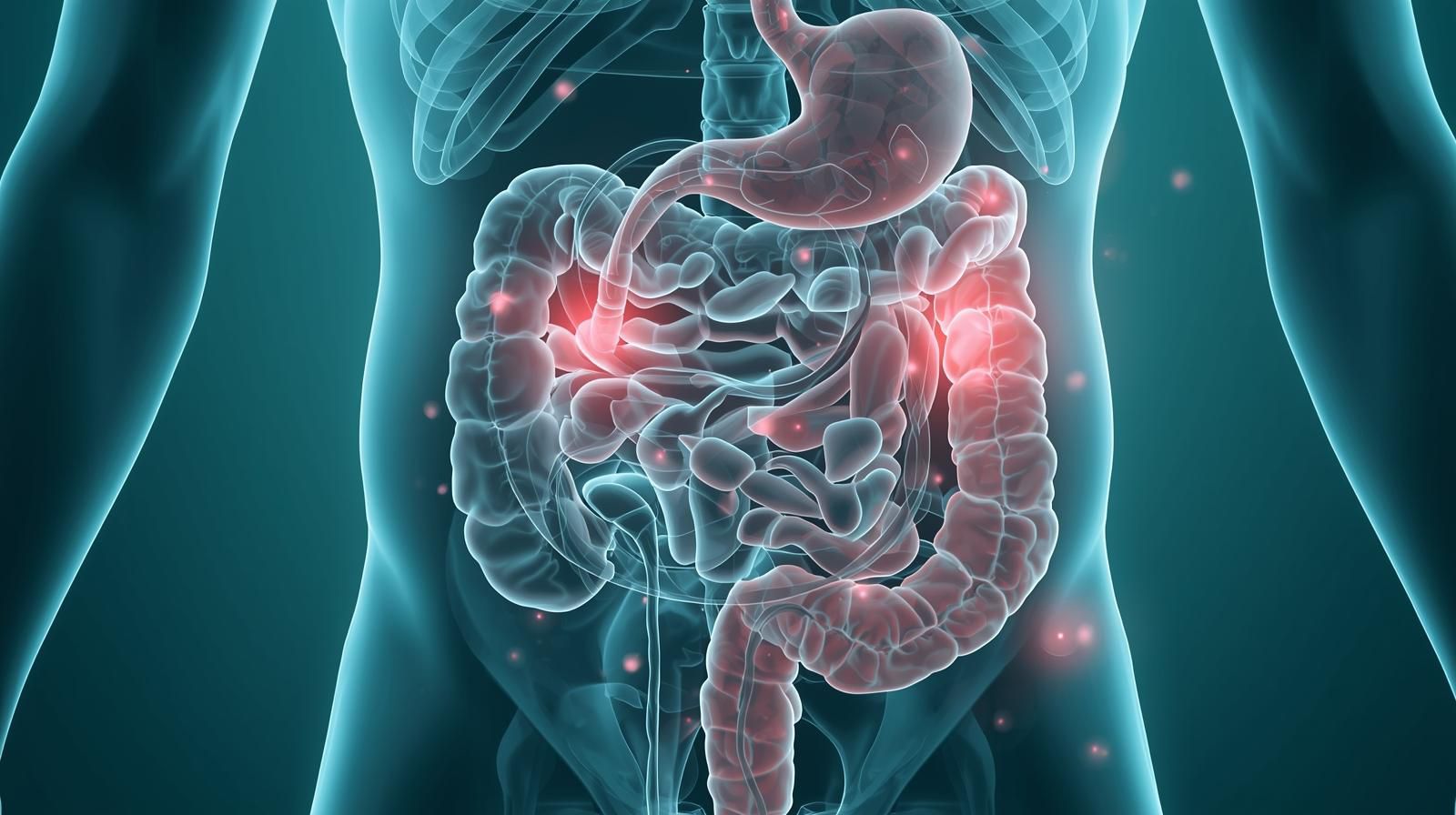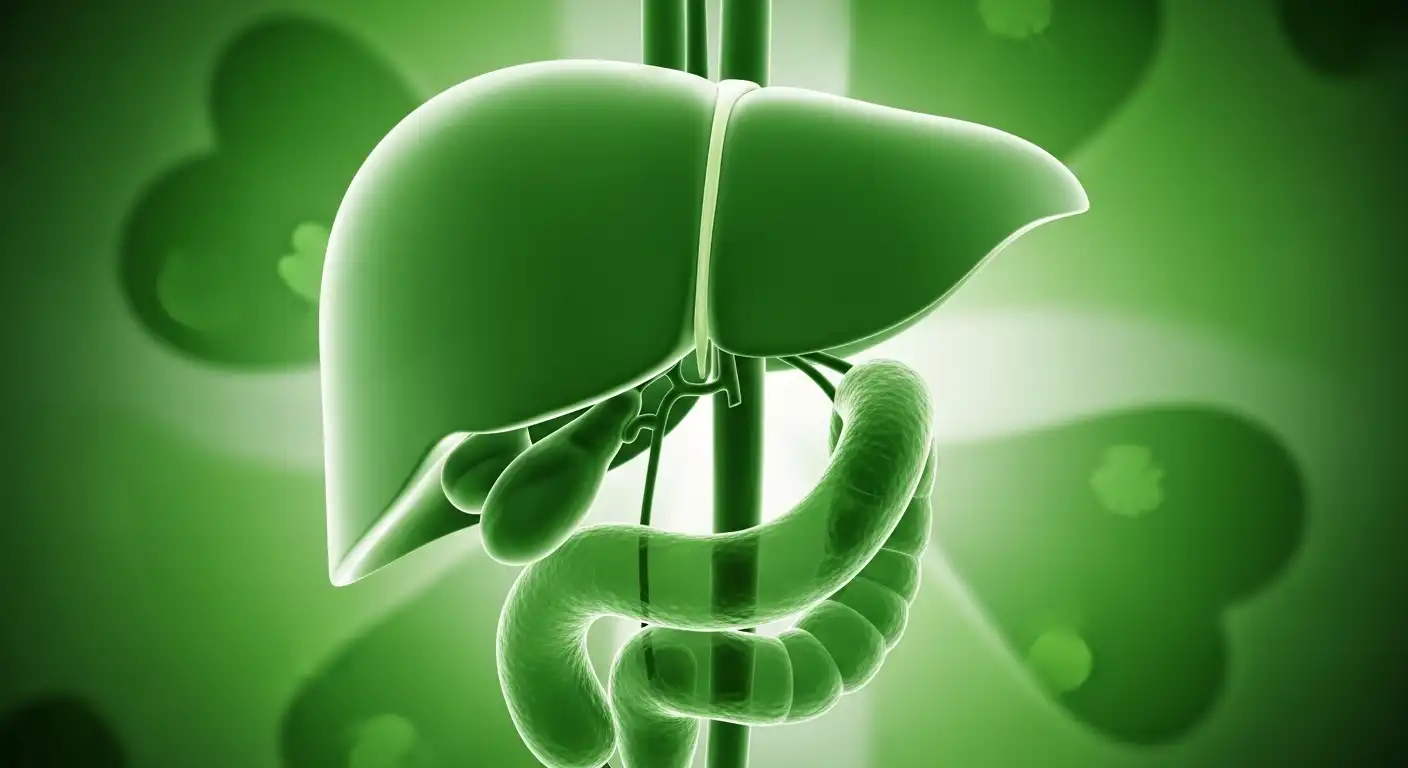Understanding Digestive System Cancers
Cancers of the digestive system can be complex, and two of the most common — stomach (gastric) cancer and colon (colorectal) cancer — are often confused. While both affect the digestive tract, they differ greatly in causes, symptoms, detection, and treatment.
At BB Global Health, we believe that awareness is the first step toward prevention. Understanding the differences between these cancers can help patients recognize early warning signs and seek timely medical care.
1. How Stomach and Colon Cancer Develop
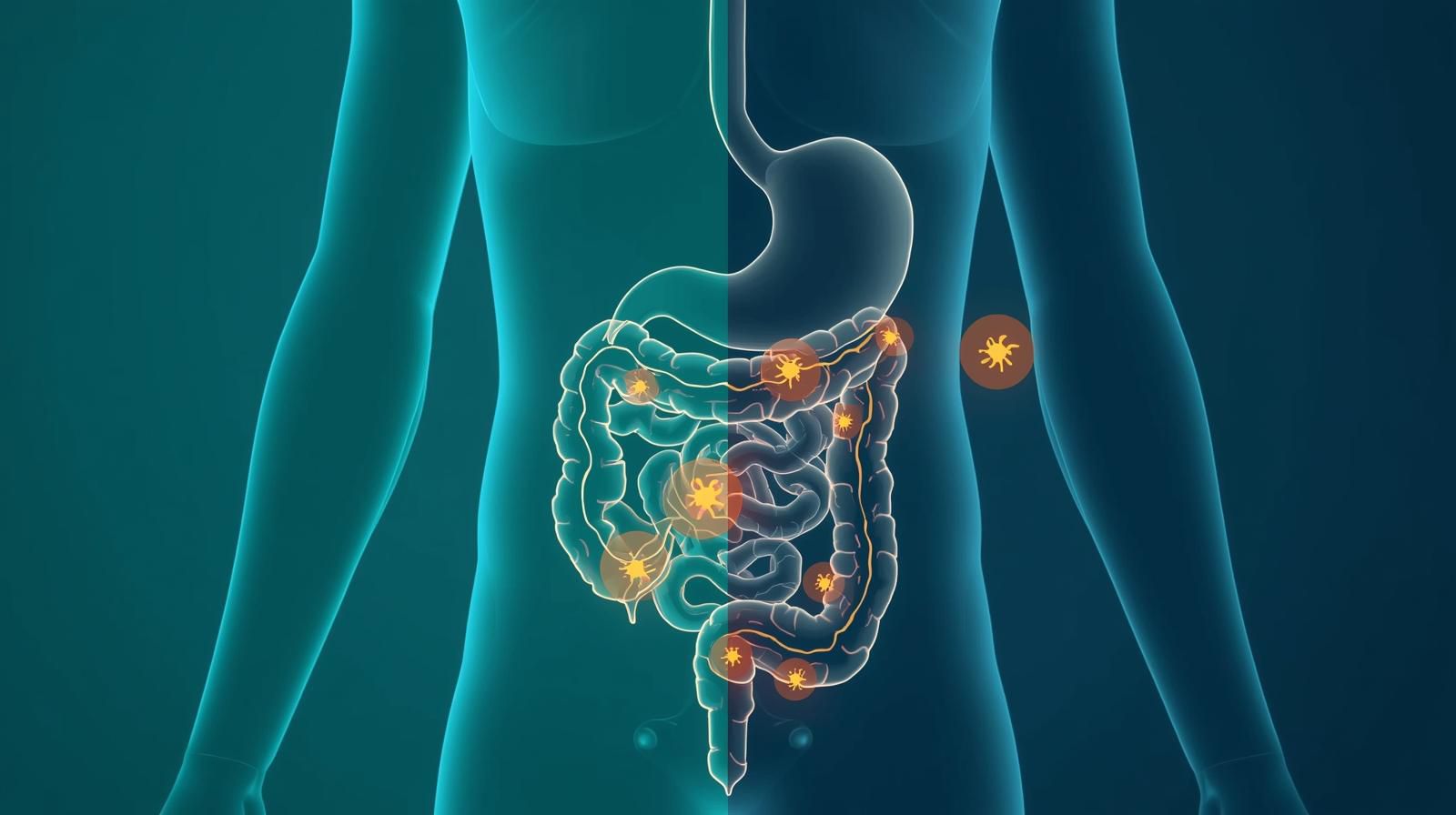
Stomach Cancer (Gastric Cancer):
Begins in the inner lining of the stomach, most commonly in the glandular cells that produce mucus (adenocarcinoma).
Colon Cancer (Colorectal Cancer):
Starts in the colon or rectum — the lower part of the digestive system. Most cases begin as polyps, small noncancerous growths that may become malignant if not detected and removed in time.
Knowing where and how these cancers start helps determine the most effective screening and treatment strategies.
2. Common Causes and Risk Factors
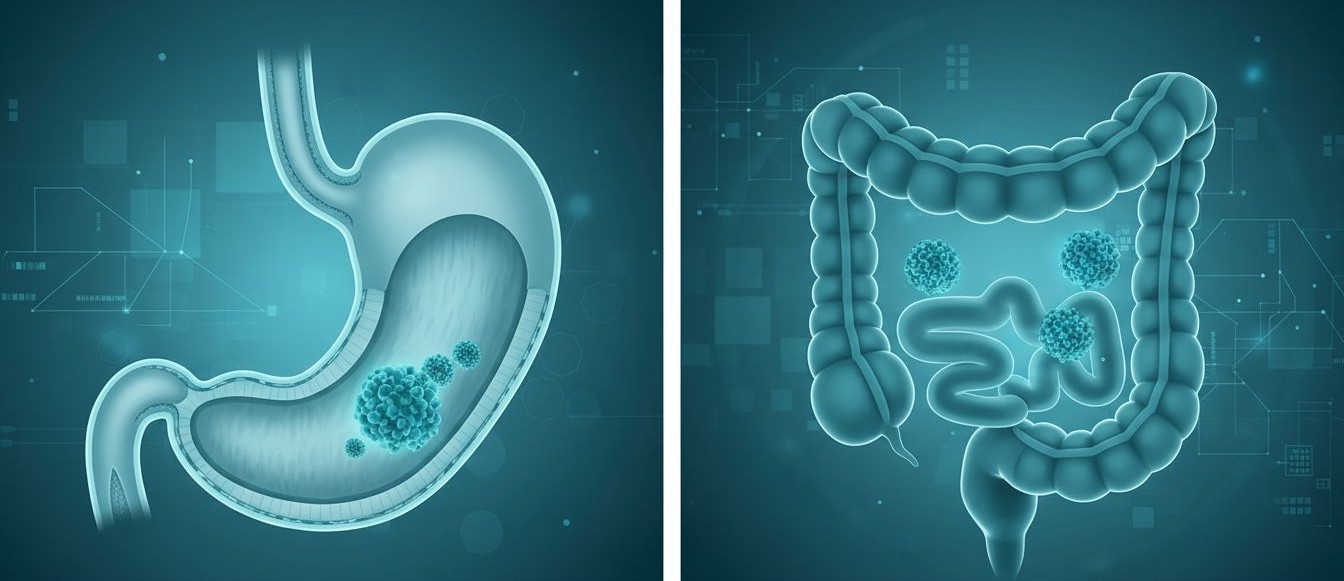
Stomach Cancer Risk Factors
- Chronic infection with Helicobacter pylori (H. pylori)
- Diets high in smoked, salted, or processed foods
- Smoking and heavy alcohol use
- Family history of gastric cancer
Colon Cancer Risk Factors
- Family or personal history of polyps or colorectal cancer
- Diet low in fiber and high in red or processed meat
- Sedentary lifestyle or obesity
- Chronic inflammatory bowel disease (Crohn’s disease or ulcerative colitis)
Prevention Tip:
Regular medical checkups, a balanced diet, and quitting smoking are key steps in reducing risk for both cancers.
3. Recognizing Early Signs and Symptoms
Both cancers can develop silently at first — that’s why early screening is vital.
Still, their symptoms can differ:
Possible Symptoms of Stomach Cancer
- Persistent indigestion, nausea, or bloating
- Discomfort or pain after eating
- Loss of appetite or unexplained weight loss
- Vomiting or dark, bloody stools
Possible Symptoms of Colon Cancer
- Changes in bowel habits (constipation, diarrhea, or narrow stools)
- Rectal bleeding or blood in stool
- Persistent fatigue or anemia
- Unexplained weight loss
Because these signs may resemble other digestive issues, professional evaluation and imaging are essential for early diagnosis.
4. Screening and Diagnostic Methods
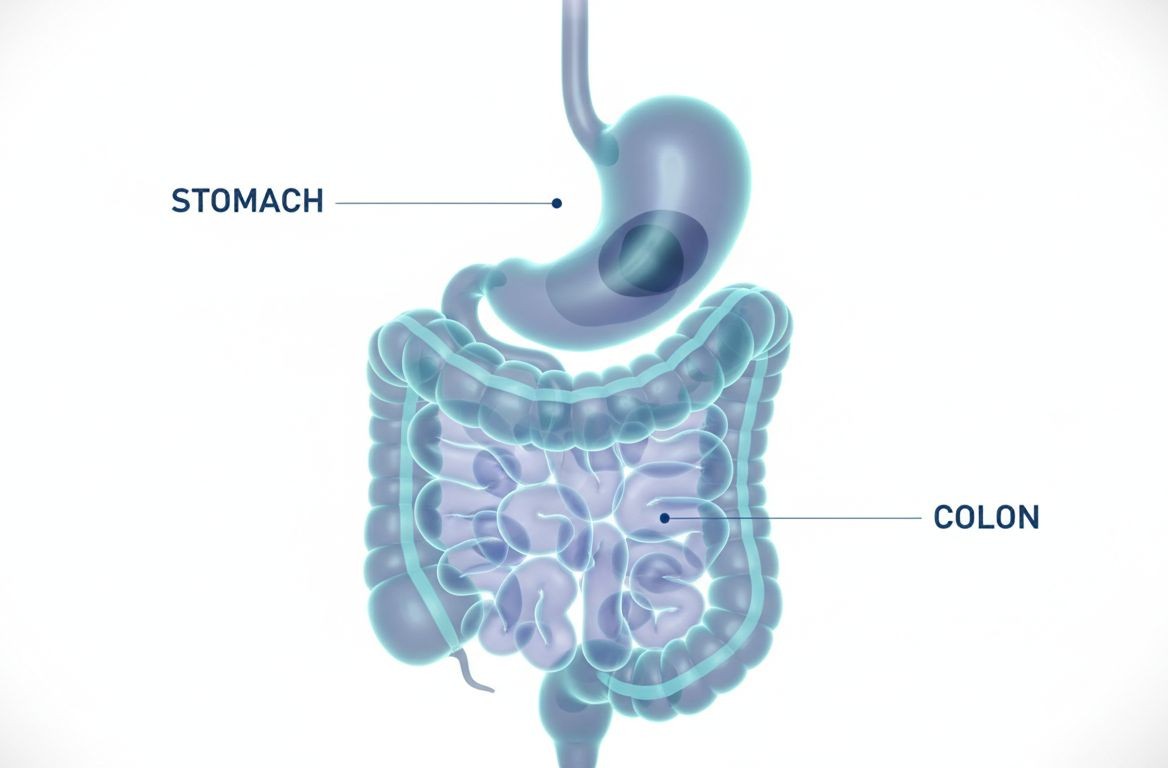
At BB Global Health, our advanced oncology and gastroenterology units provide comprehensive diagnostic solutions for both cancers.
For Stomach Cancer
- Endoscopy with biopsy for accurate tissue analysis
- CT or MRI scans for staging and spread assessment
- Blood tests for tumor markers
For Colon Cancer
- Colonoscopy for direct visualization and removal of polyps
- Stool tests for hidden blood or genetic mutations
- Imaging scans to check for metastases
Early detection dramatically increases survival rates, especially when cancer is caught before it spreads.
5. Treatment Options
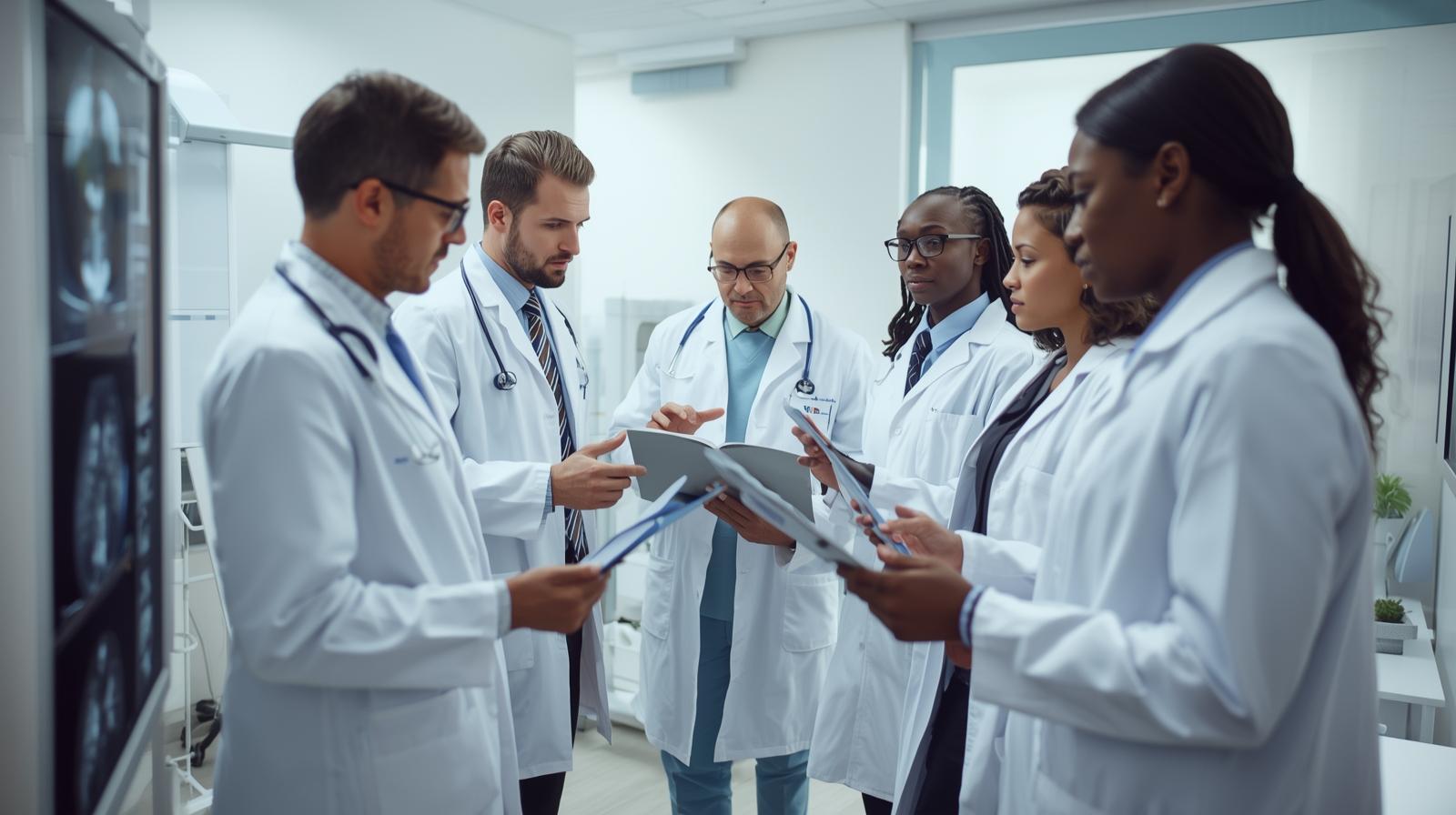
Stomach Cancer Treatments
- Surgical removal of part or all of the stomach (gastrectomy)
- Chemotherapy and targeted therapy
- Immunotherapy for advanced stages
Colon Cancer Treatments
- Surgical resection of the affected colon or rectum
- Chemotherapy and/or radiation therapy depending on stage
- Targeted and biologic treatments for metastatic cases
At BB Global Health, every patient case is discussed in a multidisciplinary tumor board, where oncologists, surgeons, radiologists, and pathologists collaborate to design an individualized, evidence-based treatment plan focused on both survival and quality of life.
6. Prevention and Healthy Lifestyle Tips
While not all cancers can be prevented, certain habits can significantly reduce risk:
- Eat plenty of fresh fruits, vegetables, and fiber-rich foods
- Limit red and processed meats
- Avoid smoking and heavy alcohol use
- Maintain a healthy weight and stay active
- Get regular screenings starting at age 45, or earlier if you have a family history
Small lifestyle choices today can make a big difference tomorrow.
🩺 When to See a Doctor
If you experience persistent digestive discomfort, unexplained fatigue, or changes in bowel habits, don’t wait.
Early consultation can mean simpler treatment, faster recovery, and better long-term outcomes.
At BB Global Health, our expert team of gastroenterologists, oncologists, and surgeons provides end-to-end care — from prevention and diagnosis to advanced treatment and recovery support.
Your Health, Our Priority
Cancer awareness is not only about understanding disease — it’s about taking timely action.
Whether you need a routine colonoscopy, an endoscopic gastric screening, or a second opinion, BB Global Health offers international patients world-class diagnostics and treatment in a compassionate environment.
📞 Contact BB Global Health today to schedule your digestive health screening or consultation.
